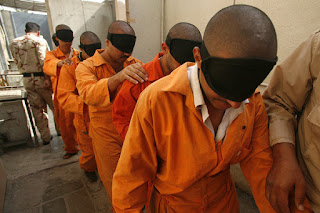Summary Points
- The United States Department of Defense and Central Intelligence Agency (CIA) promulgated policies and requirements that required health professionals to participate in the mistreatment of counter-terrorism detainees through participation in such practices as abusive interrogation and force-feeding of detainees, in violation of ethical standards established by associations representing the health professions.
- A report of the Defense Health Board to the Secretary of Defense on military medical ethics released in 2015 found that the Department of Defense “does not have an enterprise-wide, formal, integrated infrastructure to systematically build, support, sustain, and promote an evolving ethical culture within the military health care environment.”
- The Board also found that ethical codes promulgated by the health professions, including the duty to avoid harm, provide a sound basis for military medical practice, even taking into account the unique challenges often faced by military health professionals in reconciling the military mission with patient needs.
- The health professional community should urge the Secretary of Defense to adopt and implement the recommendations of the Defense Health Board, rescind directives authorizing participation of health professionals in interrogation and force-feeding because they are inconsistent with professional ethics, and provide ongoing advice and support for the reform process.
Principles of ethical
conduct are essential to clinical practice and the social legitimacy of the
health professions. The professions derive the obligations of health
professionals from moral principles, the traditions of medicine, and a social
contract with society. They reflect these obligations in codes adopted by
professional organizations. As the Defense Health Board, an independent Federal
Advisory Committee to the Secretary of Defense, recently recognized in a review
of medical ethics in the United States military, health professionals in the
armed services must adhere to these professional obligations even as they face
responsibilities to accomplish the military mission [1]. The Board’s affirmation of
these obligations, most notably first loyalty to the patient ([1]; [2], Principle VIII and Opinion
10.015; [3], Principal A and 3.04; [4], Provision 2 and section 2.1; [5]), along with its
recommendations for structural reform in military medical ethics, has
implications for health professional participation in intelligence and security
functions in connection with counter-terrorism detainees. Adopting its
recommendations would restore the integrity of military medical ethics and
require rescission of requirements that health professionals participate in
interrogation and force-feeding of detainees. It is incumbent on the profession
to support the Board’s recommendations and urge the Secretary of Defense to
adopt them.
Full article at:
By: Leonard S. Rubenstein
More at: https://twitter.com/hiv
insight

No comments:
Post a Comment